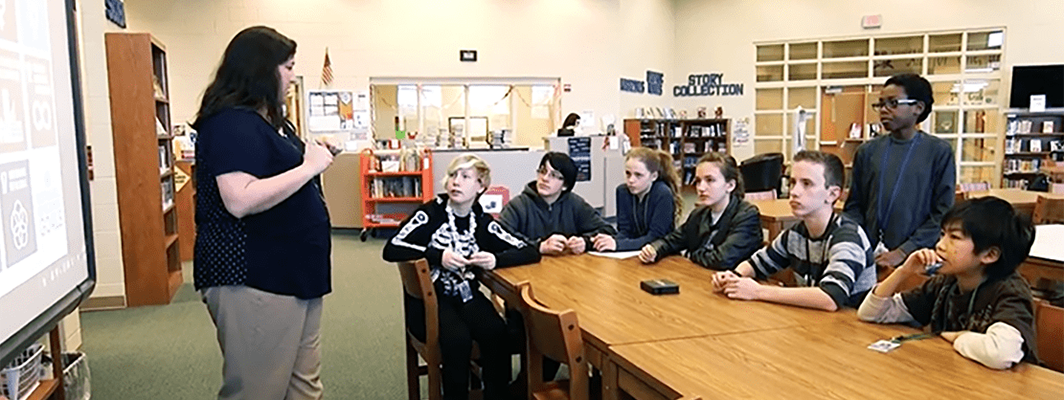
The Future Ready Librarians® initiative has already changed the conversation about ways in which teacher librarians lead, teach, and support innovative learning in schools. Now in its fifth year, Future Ready Schools® (FRS) has grown beyond the more than 3,500 pledges of superintendents to become a national model for educators to collaboratively imagine and lead innovation and change. The Future Ready Librarians initiative aligns school libraries and librarians with strategic work through the Future Ready Librarians Framework.
Thanks to a partnership between Future Ready Schools and Digital Promise, the first Future Ready Librarians micro-credential, Empowering Students as Creators, is now available on the Digital Promise Micro-Credential Platform. This micro-credential focuses on how Future Ready Librarians “encourage and facilitate students to become increasingly self-directed as they create digital products of their learning that engage them in critical thinking, collaboration, and authentic real-world problem solving.” With teacher librarians across the U.S. embracing the maker movement as part of the Future Ready Librarians initiative, it was only natural to work with Digital Promise, a leader in national conversations about maker education and micro-credentials, to create an innovative professional learning tool for librarians.
School libraries are shifting from traditional settings where information is consumed to modern library programs which support authentic student inquiry, design, and creation. A key part of the Future Ready Librarians Framework is empowering students as creators. Innovative library programs such as Riverside Middle School in Greenville, South Carolina, where students used human-centered design to respond to local needs through a collaborative and creative process to craft a “Read and Feed” kiosk for their community, exemplify this future learning focus. The Empowering Students as Creators micro-credential is designed to help all teacher librarians reflect, validate, and get feedback on their leadership and teaching in support of student design and creation in the library.
The development of the micro-credential was an opportunity to try something different, fusing educator interest in maker education with the emergence of micro-credentials as an innovative professional learning tool. In partnership with Digital Promise, a prototype micro-credential was created based on the Future Ready Librarian Framework. In addition to this partnership, assessors were recruited from national library leaders participating in the Lilead Fellows program.
Recognizing that micro-credentials are new to many educators, we conducted a series of pilots to learn, fail, iterate, and improve together. For issuers and assessors, the pilots helped improve the micro-credential, get feedback from participants, and understand how to scale implementation at the national level. Knowing the devil is in the details, we then asked intrepid teacher librarians to complete the micro-credential for quality control and validity, and to help us ensure a smooth and positive experience for participants.
Our pilot helped us learn a number of lessons which will assist us as we move forward. These include:
Interested school librarians can access the micro-credential, complete the required components, and submit their artifacts for assessment. Submissions for the second cohort will be accepted through June 1 and then open again shortly thereafter. More information can be found at https://futureready.org/frl_micro/.
Find additional resources and learn more about the Future Ready Librarians initiative at futureready.org/librarians. To learn more about micro-credentials, visit digitalpromise.org/microcredentials.
This micro-credential has been made possible thanks to the support and partnership of Follett, the Alliance for Excellent Education, and Digital Promise.